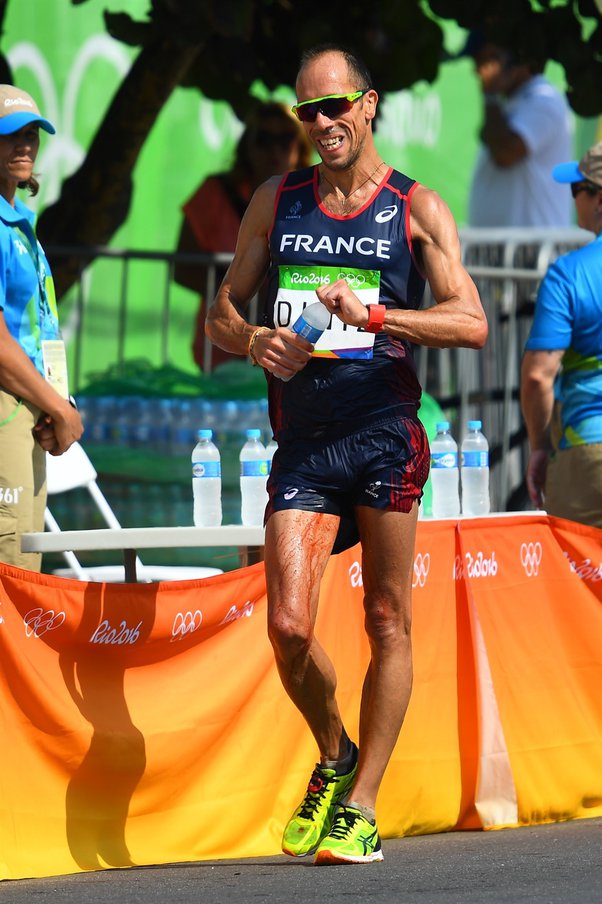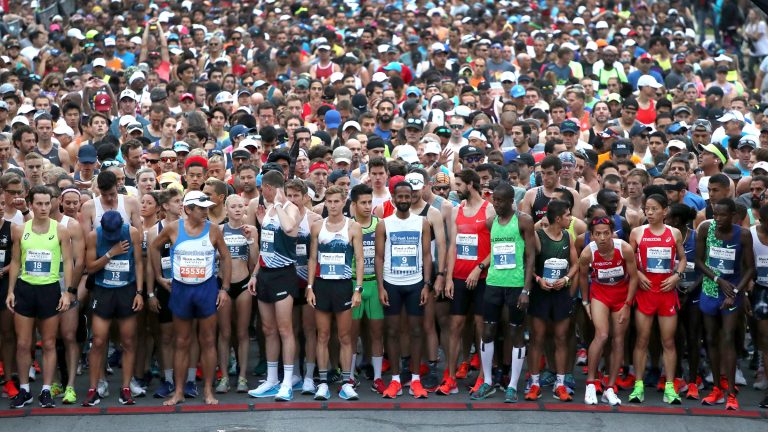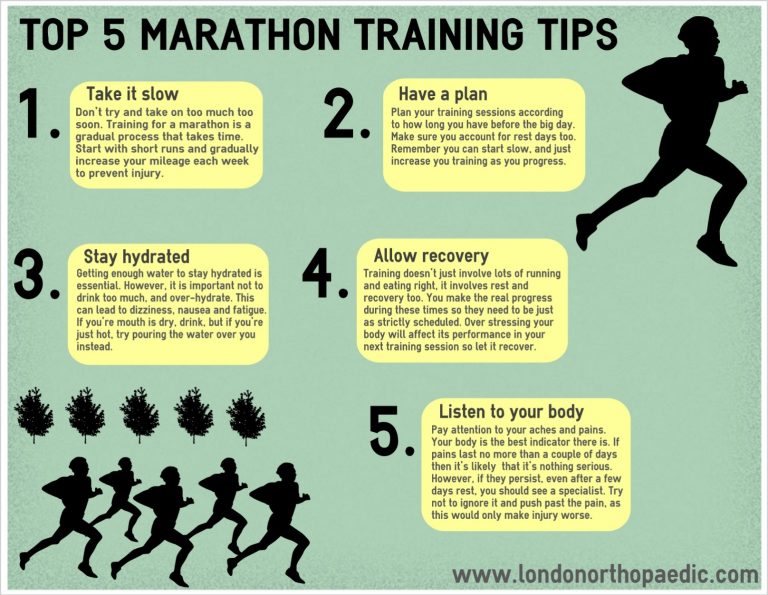Marathon Alternative Name
Marathon is also commonly known as a long-distance running event that covers 26.2 miles. Hosting a rich history dating back to ancient Greece, marathons have evolved into popular races worldwide.
Athletes and fitness enthusiasts challenge themselves to complete this iconic distance, showcasing determination and endurance. The term “marathon” has become synonymous with resilience and triumph in overcoming obstacles. Participants push past physical and mental barriers to cross the finish line, epitomizing the human spirit’s relentless pursuit of achievement.
As the popularity of marathons continues to soar, the event serves as a test of personal limits and a celebration of athletic prowess. Joining a marathon not only promotes physical health but also fosters a sense of community and camaraderie among participants.
History Of The Marathon
The marathon, also known as the long-distance running race, has a rich history that dates back to ancient times. The origins of the marathon can be traced back to the legendary run of Pheidippides from the battlefield of Marathon to Athens in 490 BC, delivering the news of the Greek victory over the Persians. This historic event served as the inspiration for the modern-day marathon race, which has become a prominent fixture in the world of sports and athletics. Let’s take a closer look at the captivating history of the marathon and its early races.
Origins Of The Marathon
The origins of the marathon can be attributed to the ancient Greek legend of Pheidippides, a herald and professional runner who was tasked with delivering a message from the battlefield of Marathon to the city of Athens. According to historical accounts, Pheidippides ran approximately 26 miles to convey the news of the Greek victory over the Persians. This heroic feat has been immortalized and serves as the foundation for the modern marathon race, which commemorates his remarkable act of endurance and determination.
Early Marathon Races
Early marathon races were introduced as part of the Olympic Games in the late 19th century, with the first official marathon taking place at the inaugural modern Olympics in 1896. The race, which covered a distance of approximately 26 miles, became an instant sensation and captivated the imagination of athletes and spectators worldwide. Since then, the marathon has evolved into a globally celebrated event, attracting participants from diverse backgrounds and cultures, showcasing the unyielding spirit of human perseverance and athletic prowess.

Credit: www.linkedin.com
Different Names For Marathons
Marathons are known by different names around the world, each reflecting the rich diversity of running cultures. Let’s explore the various alternative names for marathons based on different criteria.
Alternate Names In Different Countries
In various countries, marathons are not only referred to as marathons but also have unique names that showcase regional traditions and values.
| Country | Alternate Marathon Name |
|---|---|
| Japan | Ekiden |
| France | Course de 42 Kilometres |
| Kenya | Chamgei Marathon |
Alternative Names Based On Distance
Marathons can also be named based on the distance covered, with variations that highlight specific lengths of the run.
- Half Marathon: 21K or 13.1 miles
- Ultra Marathon: Beyond 26.2 miles
- 10K Race: 10 kilometers
Famous Alternative Marathons
Renowned as one of the most thrilling marathon alternaives, the [Marathon Alternative Name] offers a unique and exciting challenge for adventurous runners seeking a change from traditional races. With its [specific features or attractions], this event guarantees an unforgettable experience.
Ultra Marathons
Ultra Marathons are races that go beyond the standard marathon distance of 26.2 miles. These events typically range from 50 kilometers to 100 miles and require incredible endurance.
Obstacle Course Races
Obstacle Course Races, also known as OCRs, blend running with various challenges like climbing walls, crawling through mud pits, and carrying heavy objects. These races test both physical strength and mental grit.
Benefits Of Participating In Alternative Marathons
Participating in alternative marathons offers a unique experience, allowing runners to challenge themselves in unconventional settings. These events often promote social causes, showcasing the importance of community involvement and diversity in the running world. Additionally, alternative marathons foster a sense of creativity and adventure, attracting a wide range of participants.
Benefits of Participating in Alternative Marathons Alternative marathons offer a unique and exciting opportunity for fitness enthusiasts to challenge themselves in unconventional ways. Engaging in these events can bring about several physical and mental health benefits, as well as a sense of adventure and fun. Physical and Mental Health Benefits Participating in alternative marathons can lead to improved physical and mental well-being. The diverse terrain and challenging nature of these events provide an excellent full-body workout, leading to increased strength, stamina, and cardiovascular fitness. Such activities also promote mental well-being by reducing stress and anxiety levels, promoting a positive mindset, and boosting overall happiness. A Sense of Adventure and Fun Beyond the physical and mental health benefits, alternative marathons provide participants with an exhilarating sense of adventure and fun. These events offer a break from traditional road races, allowing runners to explore picturesque landscapes and encounter unique obstacles, adding an element of excitement and variety to their fitness journey. By embracing alternative marathons, individuals can expand their horizons, foster a deeper connection with nature, and create lasting memories while pushing their physical limits. In summary, alternative marathons offer a plethora of benefits, ranging from physical and mental well-being to exhilarating adventure and fun. Embracing these unique events is a compelling way to challenge oneself and reap a wide range of rewards.Tips For Training For Alternative Marathons
Training for a marathon is an undertaking that requires dedication, discipline, and careful planning. But what if you’re not interested in running a traditional marathon? There are plenty of alternative options out there that can provide just as much challenge and excitement. Whether you’re training for a trail marathon, an obstacle course race, or a triathlon, these tips will help you prepare for the unique demands of alternative marathons.
Cross-training And Endurance
Cross-training is an essential component of preparing for alternative marathons. By engaging in different activities, you can strengthen different muscle groups and reduce the risk of overuse injuries. It also helps to improve your overall endurance, allowing you to go the distance on race day.
Consider incorporating activities such as swimming, cycling, and strength training into your training routine. These exercises work different muscle groups while still providing an effective cardiovascular workout. Aim for at least three cross-training sessions per week, focusing on exercises that mimic the movements required for your specific race.
Specific Training Techniques
In addition to cross-training, it’s important to implement specific training techniques that target the unique challenges of your chosen alternative marathon. For example, if you’re training for a trail marathon, it’s crucial to practice running on uneven terrain and hills to build your stability and endurance.
If you’re preparing for an obstacle course race, focus on exercises that simulate the obstacles you’ll encounter. Incorporate plyometrics, such as box jumps and burpees, to improve your explosive power and agility.
For a triathlon, be sure to include brick workouts, which involve combining two disciplines back-to-back, such as swimming followed by cycling or cycling followed by running. This will help your body adapt to the transitions required during the race.
Regardless of the type of alternative marathon you’re training for, don’t forget the importance of rest and recovery. Allow your body time to heal and rebuild between workouts to prevent injury and maximize performance on race day.
In Conclusion
Training for alternative marathons requires a specialized approach that goes beyond traditional marathon training. By incorporating cross-training and specific techniques into your routine, you can ensure you’re fully prepared for the unique challenges of your chosen race. Remember to listen to your body, stay consistent with your training, and most importantly, enjoy the journey towards accomplishing your marathon alternative goals!

Credit: www.independent.co.uk

Credit: www.linkedin.com
Frequently Asked Questions On Marathon Alternative Name
Faq 1: What Are Some Alternative Names For Marathons?
Marathons are also known as long-distance races, endurance runs, or 42. 195-kilometer challenges.
Faq 2: Are There Any Other Terms Used For Marathons?
Yes, you might hear marathons referred to as full marathons, 26. 2-mile races, or classic distance events.
Faq 3: What Other Names Can Be Used Instead Of Marathons?
Some other terms used synonymously with marathons include marathon races or simply marathon events.
Conclusion
In sum, choosing the right name for a marathon is essential for attracting participants and creating a memorable event. Whether it’s a classic name or a creative one, it’s crucial to consider the target audience and the overall message you want to convey.
A well-selected name can make the marathon stand out in a competitive landscape.







